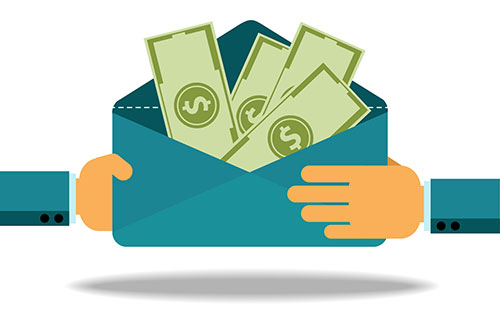Whether you are looking to hire a freelance blogger or are a content provider looking for clients, there is one certainty: the topic of rates will arise.
Freelance writers spend considerable time honing their writing skills so they can command the best freelance blogging rates. From taking college-level English classes to participating in online writing seminars, it seems there isn’t enough time in the day to sharpen our literary acumen. However, the same amount of time and sweat rarely is devoted to devising freelance blogging rates. In fact, many freelance writers undercharge for freelance blogging services.
Freelance bloggers need to learn the factors that form the structure for freelance blogger rates. First, let’s take a look at the two primary ways freelance bloggers charge clients for their time and services.
Fixed Versus Hourly Rates
Freelance bloggers use two methods for charging clients for work delivered. Fixed rate projects charge clients a flat fee, regardless of the time and resources spent to complete a project. Hourly rate projects charge clients for work performed each hour of a project. Both freelance blogging rates carry advantages and disadvantages.
Fixed Rate
Talk to any experienced freelance blogger and you find that fixed rate projects do a much better job of motivating writers. The faster a blogger completes a post, the more money he or she earns per hour. Fixed freelance blogging rates work best for fixed word posts, such as blogs that require 500 words per post. On the other hand, fixed rate jobs can come back to bite bloggers, as unexpected problems arise that delay the completion of a blog post.
Hourly Rate
Third-party platforms that connect clients and freelancers provide time keeping software that makes it easy and accurate to bill clients for writing services rendered. Not every freelancer bills clients for hourly work delivered via third party platforms. Hence, questions arise on projects that freelancers submit hourly rate bills that don’t include the use of a timekeeping device. Hourly rate charges work best for lengthy writing projects, such as eBooks and white papers.
Some freelancers charge a combined rate for more elaborate projects. For example, a client wants a freelancer to review a series of blog posts and then transform the posts into an eBook. The freelancer hired for the project can charge a flat rate to review the blog posts and an hourly rate to create the new eBook content.
Factors that Influence Freelance Blogging Rates
The first thing for writers to establish credible freelance blogging rates involves performing research into what other writers charge for similar projects. Third party platforms typically list each freelancer’s projects, including the details of the project, as well as what the freelancer charged the client. After researching industry rate standards, freelancers must consider several other factors for establishing freelance blogger rates.
Education
Clients typically want to hire freelance bloggers that have received some sort of formal education. The education requirements range from a Bachelor’s degree in virtually any discipline to a PhD in English Literature. Clients also review writer skill sets by referencing tests administered by third party platforms. The better that you perform on the tests, the more you can charge per hour and project.
Experience
Clients feel much more at ease working with freelance bloggers that have a track record of writing blog posts that attract visitors to websites. Experience for freelance bloggers comes in the form of an expansive writing portfolio and client feedback, whether the feedback comes from a third party platform or client testimonials presented on a writer’s website.
Type of Genre
The type of genre matters for charging freelance blogging rates. Search engine optimized blog posts written to attract more website visitors is worth more than a sci-fi short story written for entertainment purposes only. Freelance bloggers can charge more per hour and project by writing posts that double as website landing pages and creating white papers that help customers solve problems.
When Time is of the Essence
Whenever a freelancer sees a job post that contains the word “Rush” or the phrase “Need within 24 hours,” the time has come to bump up freelance blogger rates. Reasonable clients that have rush jobs understand that they must pay a premium for the commodity called time. Just make your rate hike reasonable. Otherwise, clients have other freelancer options that fit within their budgets.
Freelance bloggers run a business, which means they must account for expenses when coming up with freelance blogging rates.
Here is a short list of some of the expenses incurred by freelance bloggers:
- Utility Bills
- Internet Access
- Computer Hardware
- Freelance Writer Software Packages
- Telephone Bills
- Office Furniture
- Computer Accessories (Camera, Headphone, etc.)
- Printing Equipment
All of the expenses play a factor in what you charge clients. You also must consider client added costs, such as reviewing an Amazon product or purchasing a book that you have to read to write a review.

